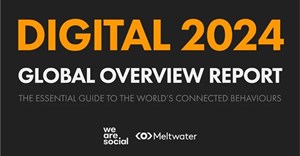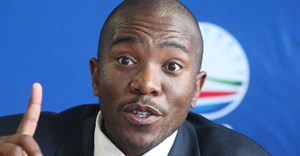
Subscribe & Follow

Jobs
- Head of Performance Marketing South Africa
- LinkedIn Outreach Assistant - Remote Cape Town
- Creative Content Video Editor Johannesburg
- Influencer Campaign Manager Cape Town
- Pioneering Coordinator Cape Town
- Video Editor for Social Media Content Cape Town
- Social Media Manager and Strategist Cape Town
- Junior Digital Art and Social Media Marketing Coordinator Johannesburg
Are you using 'social listening'?
When I used to mention Twitter during a media training session I was generally met with either a raising of eyebrows or the general comment that 'we're not really into that'... My response was 'well, if you're not into that now, best you start looking into how this could affect your business'. Basically what I was saying was if you're not using Twitter yet, you're already too late...
As I lay no claim to being a Twitter expert (far from it) I want to look at this from my side as a media consultant. Companies pay me good money to teach them how to use the media, how to manage media crises - but they still don't harness Twitter. Or for that matter check out what's being said about them online. And let's face it, what's being said about you can make or break your organisation...
The world is your customers' stage... and they're using it
In 2006, the UCT Unilever Institute of Strategic Marketing produced a research project called 'Wildfire' examining the impact of word-of-mouth marketing. It looked at the power of networks and came up with a scientific way of determining the power of word-of-mouth marketing and the talk value of a brand.
Today, eight years on, Twitter has added a whole new dimension to word-of-mouth marketing. Now, as well as people passing on their opinions, comments, complaints and praise verbally, they're taking to a far bigger stage - the Twittersphere to air their views.
This is where social listening or social media monitoring comes in. It's all about tracking what people are saying about your brand at any one time and if you don't know this you're in trouble.
Just recently, I tried out my own research to see just who was and wasn't responding to their being mentioned on Twitter.
Want a response? Don't bank on getting one
My first Tweet was a rant about a top bank whose service was beyond bad and that had frustrated me no end over a period of a week. The second Tweet was about bad service at a Primi Piatti branch in Cape Town.
You're probably not going to be surprised when I tell you that I'm still waiting to hear from the bank - who by the way were informed telephonically also how bad their service was (no response)...
Primi-World on the other hand responded virtually immediately with a Twitter reply giving me an email address to write to, which I did. Again, almost immediately, I received an excellent email from director, Sean Holmes, asking me for more information on the particular bad service incident and assuring me of his intention to fix this problem. Now that's communication excellence - something so few organisations have in this country.
The power of the personal recommendation
When you think about how few companies are doing this, you also have to think 'what a waste' of a free marketing channel. When will companies wake up and utilise this incredible means of keeping track of their brands and what's being said about them.
It's really not hard to set up specific tweet streams mentioning keywords, that perhaps not only relate to your brand but your competitors and your industry. Not everyone who has something to say about you will necessarily tag your company in their tweets so this is where you need keyword streams for phrases with your brand name, plus 'help', 'support,' and 'customer service'.
It's proven that 70% of consumers will believe brand recommendations from friends, while only 15% rely on social posts directly from brands (Forrester Research), which is what makes this keyword search so valuable.
If you need help then hire a Twitter fundi - there are several really good ones out there. Doing so can literally turn your business around. The days of just relying on advertising for goodwill are over.
Banks in particular spend an absolute fortune on advertising so it's surprising that many still haven't harnessed the might of Twitter yet. After all, isn't that 'savvy business'?

About Marion Scher
Marion Scher (www.mediamentors.co.za) is an award-winning journalist, lecturer, media trainer and consultant with 25 years' experience in the industry. For more of her writing, go to her Bizcommunity profile or to Twitter @marionscher.

























